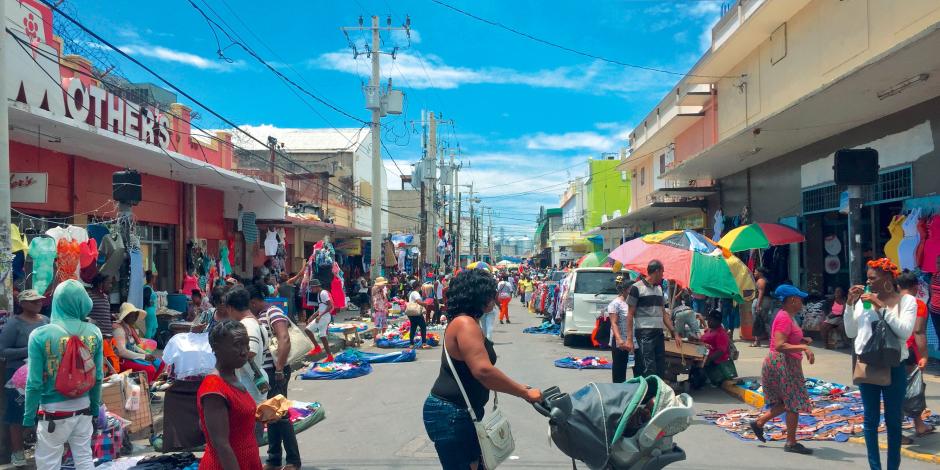Finding employment is often hard for persons with disabilityBehinderungdisabilities (PWDs) in Jamaica because of the public’s perceptionWahrnehmungperception of their inability. According to the 2016 “Jamaica surveyUmfrage, ErhebungSurvey of Living Conditions”, more than 80 per cent of PWDs in Jamaica were unemployed in 2014.
The year 2014 was also when the Jamaican government passed the Disabilities Act, which was meant to be a way of protecting the rights of PWDs, including the right to employment. However, for most qualified PWDs, employment is still a dream.
After a car accident, vlogger Deana-Rae Clayton became physically disabled and suffered brain damage that changed her Jamaican accent to a British one. With her unexpected new British accent, Clayton hoped to become a voice actorSynchronsprecher(in)voice actor, but it hasn’t been easy to make this happen. “My neurologist can give me a letter which states that my brain damage will not to affect sth.etw. beeinträchtigenaffect my day-to-daytäglichday-to-day work,” Clayton explains, “[but] I’ve been told, based on my series of disabilities, if a company hires me, … I’ll always be a liabilityBelastungliability, because they are to take a chance on sb.mit jmdm. ein Risiko eingehentaking a chance on me.”
The Disabilities Act, which officially came into effect in 2022, promises a legal frameworkRahmenframework for the formal employment of PWDs in Jamaica. However, old infrastructure as well as social and economic deficiencyDefizitdeficiencies make it difficult to realize this goal. In 2018, UNICEF recommended a national apprenticeshipLehreapprenticeship or internshipPraktikuminternship programme in Jamaican companies to increase public confidence in the potential of qualified PWDs.
Change happens by fighting discrimination head-on
Damion Rose is a blind sound engineerTontechniker(in)sound engineer. He to host sth.etw. moderierenhosts two internet radio programmes and co-owns a music production house, but he’s also had challenges on the job market. “The last time I to apply for sth.sich um etw. bewerbenapplied for a job in Jamaica was 2013,” Rose says. “It wasn’t a pleasant experience. I was asked: ‘How will you function around the computer?’ Even though I explained that we use screen readerBildschirmleseprogrammscreen readers, it was like breaking down a brick wallBacksteinmauer, Ziegelwandbrick wall.”
Change, it seems, can happen only by fighting discrimination head-ondirekthead-on. The executive directorGeschäftsführer(in)executive director of the Jamaica Council for Persons with Disabilities (JCPD), Dr Christine Hendricks, said: “Culture and behaviour take time, [but] when the mechanisms of the JCPD start rolling, those who would have been hard-hearted would have to go as far as a tribunalGerichttribunal to to settle sth.hier: etw. beilegen, klärensettle those matters.” Through clear legal policy and education, it is hoped that the situation of Jamaican PWDs will improve.
To find out more about Jamaica, click here.


